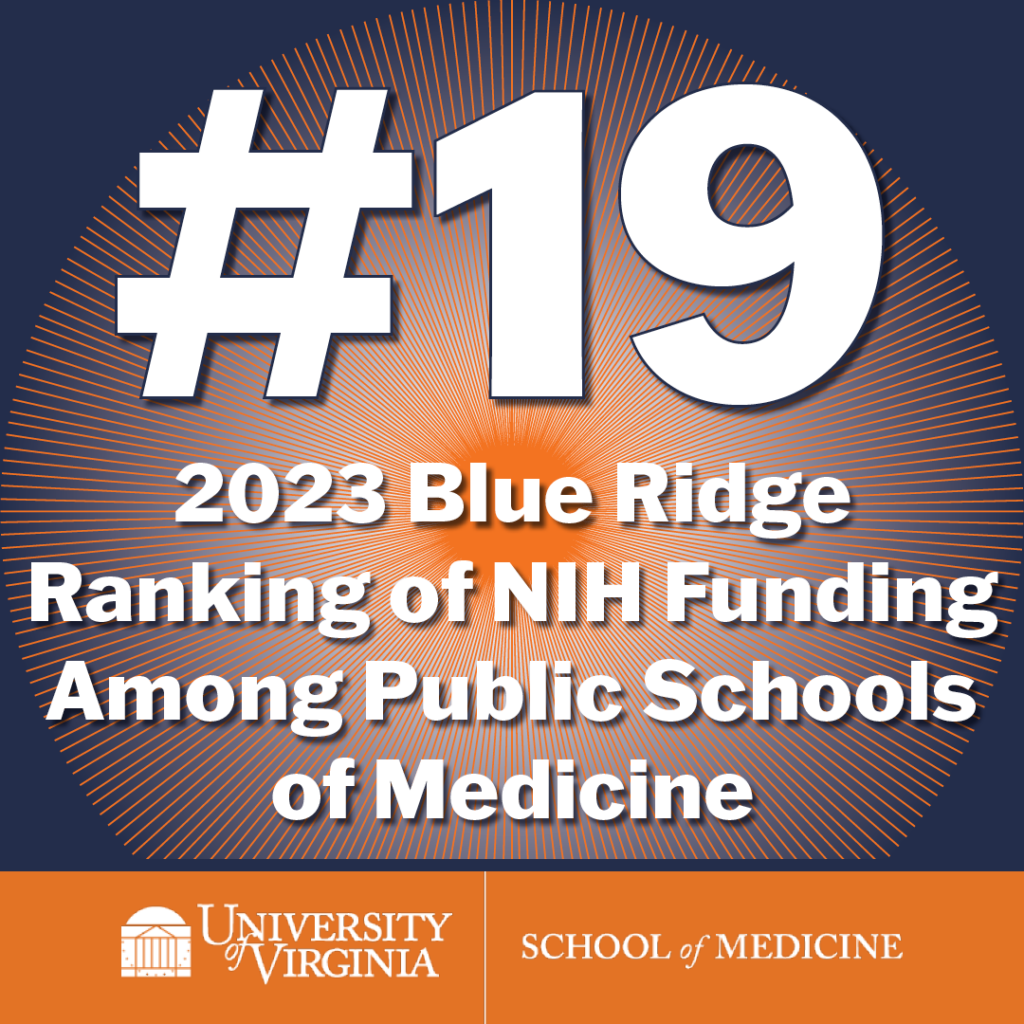
The University of Virginia School of Medicine’s work developing lifesaving treatments through innovative biomedical research has been recognized with a large increase in National Institutes of Health funding, according to a new report.
The School of Medicine’s NIH funding increased from $155.1 million in 2022 to $174.2 million in 2023, according to the Blue Ridge Institute for Medical Research, a nonprofit that tracks NIH funding. UVA rose from 21st to 19th in NIH support among all public schools of medicine.
Eleven School of Medicine departments improved their funding rankings in 2023, and a host of departments are highly ranked among their specialties:
- Three departments rank among the top 10 public medical schools:
- Biomedical Engineering (#1)
- Molecular Physiology and Biological Physics (#5)
- Public Health Sciences (#9)
- 13 departments rank among the top 20 public medical schools:
- The three above
- Neuroscience (#12)
- Pharmacology (#13)
- Anesthesiology (#17)
- Surgery (#17)
- Neurology (#17)
- Orthopedic Surgery (#17)
- Ophthalmology (#18)
- Pediatrics (#18)
- Medicine (#19)
- Microbiology (#20)
- All eight research departments rank among the top 25 public medical schools:
- Biomedical Engineering (#1)
- Molecular Physiology and Biological Physics (#5)
- Public Health Sciences (#9)
- Neuroscience (#12)
- Pharmacology (#13)
- Microbiology (#20)
- Cell Biology (#22)
- Biochemistry and Molecular Genetics (#24)
“We are so proud of and thankful for our talented researchers who have expanded our research portfolio through their commitment to breakthrough discoveries that lead to innovative care for the patients we serve,” said Melina R. Kibbe, MD, dean of the UVA School of Medicine and chief health affairs officer for UVA Health. “This sets the stage for the continued expansion of our research enterprise, as outlined in our 10-year strategic plan, to help us better care for patients.”
“As the latest report from the Blue Ridge Institute for Medical Research shows, our researchers are already performing outstanding work to add to our scientific knowledge and translate that into new and better treatments for patients,” said K. Craig Kent, MD, UVA Health’s chief executive officer and UVA’s executive vice president for health affairs.
